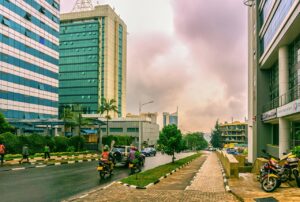“To rejoice in the prosperity of another is to partake of it” – African Proverb
Sudan’s Civil War Reaches New Depths: Al-Jazirah Massacre Exposes RSF Brutality
By Pojanee Fleury, staff writer October 23, 2024
October 2024 became the deadliest month of Sudan’s civil war as a commander’s defection triggered savage reprisals that claimed over 260 civilian lives
The Sudanese civil war reached a horrific new milestone in October 2024, marking one of the darkest chapters in the country’s history. The strategic al-Jazirah state became the epicenter of unprecedented violence, turning it into the deadliest month since fighting erupted in April 2023. What began as a military defection and power struggle between the Sudanese Armed Forces (SAF) and the paramilitary Rapid Support Forces (RSF) quickly spiraled into chaos. The conflict has since devolved into a campaign of terror, with the RSF resorting to brutal tactics to maintain control and punish those they perceive as betrayers. Civilian casualties have surged due to indiscriminate attacks, mass displacement, and widespread destruction, leaving communities devastated and amplifying the already dire humanitarian crisis. As the violence escalates, the world watches in horror, grappling with how to respond to the intensifying atrocities.
The Defection That Changed Everything
On October 20, 2024, Abu Aqla Keikel, a senior commander in the Rapid Support Forces (RSF) who held authority over Sudan’s agriculturally vital al-Jazirah state, made a decision that would alter the trajectory of the conflict and seal the fate of thousands of civilians under his former command. Keikel, along with a contingent of troops loyal to him, defected from the RSF and pledged allegiance to the Sudanese Armed Forces (SAF), delivering a significant blow to the paramilitary group’s operations in this critical region. His defection not only diminished the RSF’s control over al-Jazirah but also weakened their overall strategic position within the country.
Keikel’s departure from the RSF sent shockwaves through the group’s leadership. It was more than just a military setback; it exposed cracks in their command structure and raised questions about the loyalty of other regional commanders. Al-Jazirah state, often referred to as Sudan’s breadbasket due to its central role in agricultural production, had been under RSF control since the early stages of the conflict. This made Keikel’s intimate knowledge of RSF positions, strategies, and vulnerabilities especially damaging. His betrayal provided the SAF with a tactical edge and threatened to unravel the RSF’s grip on one of Sudan’s most critical territories.
The timing of Keikel’s defection was particularly significant. It occurred as the SAF was gaining momentum in other parts of the country, reclaiming key territories and applying increased pressure on RSF strongholds. Meanwhile, international condemnation of the RSF’s conduct in the war, including widespread reports of human rights abuses and atrocities, was reaching a fever pitch. Keikel’s decision to switch sides not only emboldened the SAF but also underscored the challenges facing the RSF, as internal dissent and wavering loyalty among commanders threatened its stability.
For the RSF leadership, Keikel’s betrayal represented more than a tactical loss—it was a public relations disaster and a potential catalyst for further defections. His intimate understanding of their operational playbook left the RSF vulnerable to SAF counterattacks, while his defection set a dangerous precedent that could inspire other regional commanders to follow suit. If left unpunished, Keikel’s actions could unravel the RSF’s carefully maintained grip on its territories and destabilize its power base further. The defection underscored the growing fractures within the group as the war dragged on, and its long-term implications remain a critical turning point in Sudan’s ongoing conflict.
The RSF’s Savage Response
The RSF’s reaction to Keikel’s defection was swift, systematic, and devastating in both its scope and intensity. Rather than limiting their focus to military targets or pursuing the defected commander directly, the paramilitary force launched a chilling campaign of violence that deliberately targeted civilian populations throughout al-Jazirah state. Their strategy was as calculated as it was brutal: if the commander had betrayed the RSF, then the civilians under his protection would be punished in retaliation, serving as both revenge and a stark warning to others who might consider defying their authority.
Throughout October, political violence in the state surged to unprecedented levels, more than doubling compared to the previous month. Over 75% of recorded incidents involved direct, targeted attacks on civilian populations. The RSF’s campaign of vengeance employed a horrifying repertoire of atrocities, including systematic sexual violence, mass abductions, village burnings, and extrajudicial killings. These acts of terror devastated local communities, leaving them in a state of fear and chaos. The violence was comprehensive, affecting all aspects of life, as families were torn apart, livelihoods destroyed, and entire communities plunged into despair.
Residents of the impacted areas reported that RSF forces had branded entire civilian populations as sympathizers or supporters of the defected commander. This label was used to justify indiscriminate attacks on villages, markets, schools, and even displacement camps. The violence was not random but followed a deliberate and methodical pattern, designed to inflict maximum psychological trauma on the region. Homes were looted and burned, leaving families destitute and homeless. Women were subjected to systematic sexual violence as a tool of humiliation and control, while mass abductions left families uncertain about the fate of their loved ones.
The intent behind these actions was clear: to demonstrate the severe consequences of opposing the RSF and to instill a deep sense of fear among the population. By targeting civilians in such a calculated manner, the RSF aimed to crush resistance and erode any sense of security within the region. The long-term psychological and social impact on the communities in al-Jazirah is likely to be profound, as survivors grapple with trauma, loss, and the dismantling of their communities under the shadow of RSF control.
A Campaign of Terror
The scale and nature of the violence in al-Jazirah during October highlighted the RSF’s willingness to employ the most brutal and inhumane tactics in order to maintain control over the region. Over 90 incidents of civilian targeting were documented throughout the month, representing not only an alarming escalation in violence but also a level of systematic brutality that stunned even seasoned observers who have long followed the horrors of Sudan’s civil war. The deliberate targeting of civilians underscored the RSF’s chilling strategy to instill fear and suppress any resistance.
The attacks bore chilling similarities to well-documented ethnic cleansing campaigns, with RSF forces deliberately targeting specific communities considered supportive of or loyal to the defected commander. These communities faced horrific acts of violence, including indiscriminate killings, mass executions, and the widespread destruction of homes and livelihoods. Sexual violence emerged as a particularly heinous weapon of war, with numerous reports of systematic rape and sexual assault being used to terrorize and humiliate entire populations. Survivors described organized assaults aimed not only at individuals but at breaking the spirit of entire communities.
Mass abductions also became a horrifying hallmark of the RSF’s campaign during this period. Families were forcibly removed from their homes in what appeared to be carefully coordinated operations designed to eliminate potential sources of intelligence or support for SAF forces. Entire neighborhoods were emptied, and those taken disappeared into an uncertain fate. Survivors who managed to escape captivity recounted harrowing stories of unimaginable brutality, including torture, physical abuse, and psychological torment—acts that made no distinction between combatants and civilians, men and women, or even adults and children. Reports from witnesses painted a grim picture of total disregard for human life, with RSF forces operating under a level of impunity that left communities defenseless and shattered.
The violence in al-Jazirah not only highlighted the RSF’s ruthless strategy but also drew international attention to the deteriorating humanitarian situation in Sudan. The systematic nature of these atrocities has spurred calls for increased accountability and urgent intervention to protect civilians caught in this brutal conflict.
The Human Cost
The human toll of the October violence in al-Jazirah was staggering, leaving a deep scar on the region. More than 260 civilian fatalities were reported during the month, though the actual number is likely much higher due to the immense challenges of documenting casualties in an active conflict zone. Limited access for humanitarian organizations and journalists has made it nearly impossible to provide an accurate count of the dead and injured, leaving many stories of loss untold. Beyond the immediate death toll, the violence sparked a massive displacement crisis, with over 47,000 people forced to flee their homes in desperate attempts to escape the RSF’s (Rapid Support Forces) campaign of terror. Families left behind their livelihoods, land, and communities, often with little more than the clothes on their backs, seeking refuge in overcrowded camps or neighboring regions that were already struggling with their own hardships.
This displacement represented far more than just a tragic humanitarian crisis; it was part of a calculated and deliberate strategy. The RSF aimed to empty key areas of populations that might support rival forces, turning displacement into a weapon of war. By making life unbearable for civilian populations—through relentless violence, destruction of homes, and the denial of basic services—the RSF sought to create buffer zones around its remaining positions. These cleared areas not only served as a defensive measure but also denied potential intelligence and logistical support to enemy forces. The systematic targeting of civilian strongholds revealed the lengths to which the RSF was willing to go in its effort to consolidate control and weaken opposition.
The psychological impact of the violence extended far beyond those who were directly affected. Communities throughout Sudan watched in horror as the events in al-Jazirah unfolded, fearing that a similar fate could befall them. The chilling message was clear: any population perceived as disloyal or as a potential threat to the controlling armed group could be subjected to unthinkable violence. This widespread fear has further fractured the social fabric of Sudan, deepening mistrust between communities and armed factions. The trauma runs deep, and even those who are physically safe must now grapple with the emotional toll of watching their country descend further into chaos.
As the violence in al-Jazirah highlights, the conflict in Sudan is not just a battle between armed forces—it is a war on the people, with civilians bearing the brunt of the suffering. The long-term consequences of such strategies, including the displacement of tens of thousands and the destruction of community trust, will likely leave scars on the nation for generations to come.
Strategic Implications
The violence in al-Jazirah had profound implications for the broader trajectory of Sudan’s civil war. The RSF’s brutal response to Keikel’s defection sent a clear message to other commanders contemplating similar moves: betrayal would be met not just with military retaliation but with campaigns of terror against civilian populations associated with defectors.
This strategy of collective punishment represented a dangerous escalation in the conflict’s brutality. By deliberately targeting civilians as a means of deterring military defections, the RSF crossed lines that even in the context of Sudan’s brutal civil war had previously been avoided. The systematic nature of the violence suggested a deliberate policy decision rather than isolated incidents of indiscipline.
The international implications were equally significant. The October massacre in al-Jazirah provided stark evidence of the RSF’s willingness to commit war crimes and crimes against humanity, strengthening calls for international intervention and accountability measures. The systematic use of sexual violence, in particular, met the criteria for prosecution under international law.
Regional Consequences
The events in al-Jazirah resonated far beyond Sudan’s borders, sending shockwaves throughout the Horn of Africa and the broader international community. The systematic nature of the violence raised concerns about the potential for similar campaigns in other areas under RSF control, while the massive displacement added to an already overwhelming regional refugee crisis.
Neighboring countries, already struggling to cope with hundreds of thousands of Sudanese refugees, faced the prospect of additional waves of displaced populations fleeing the escalating violence. The agricultural significance of al-Jazirah also meant that the violence threatened food security not just within Sudan but throughout the region, as the state’s agricultural production was severely disrupted.
The international response was swift but limited. While condemnations came from multiple governments and international organizations, the practical measures available to stop the violence remained constrained by the ongoing nature of the conflict and the limited international presence within Sudan.
A War Without Limits
The October massacre in al-Jazirah marked a grim turning point in Sudan’s civil war, underscoring the brutal reality that the conflict had reached a phase where no tactics were deemed off-limits by the warring parties. The Rapid Support Forces (RSF) not only intensified their operations but demonstrated a willingness to carry out systematic campaigns of violence targeting civilian populations. This escalation represented a significant and dangerous shift, one that further entrenched the conflict and made any prospects for resolution seem increasingly distant. The massacre was not just an isolated incident but part of a broader strategy of terror aimed at consolidating power and control.
These tragic events also brought into sharp focus the international community’s limited ability to prevent or respond effectively to such atrocities once they had begun. Despite overwhelming evidence of war crimes and crimes against humanity, practical options for intervention remained severely constrained. Diplomatic condemnation and calls for accountability, while essential, proved inadequate in the face of armed groups operating with impunity. Civilian populations were left vulnerable, caught in the crossfire and subjected to unimaginable suffering, with little to no protection. The massacre in al-Jazirah served as a stark reminder of the urgent need for stronger international mechanisms to prevent and intervene in such humanitarian crises before they spiral out of control.ling to employ the most brutal tactics to achieve their objectives.
The Path to Accountability
The October violence in al-Jazirah will undoubtedly feature prominently in any future accountability processes related to Sudan’s civil war. The systematic nature of the attacks, the clear command responsibility involved, and the extensive documentation of atrocities—through eyewitness accounts, satellite imagery, and NGO reports—provide a strong foundation for future prosecutions under international law. This event represents one of the most well-documented examples of mass violence in the conflict, highlighting the deliberate targeting of civilian populations in what many experts have described as crimes against humanity.
However, the path to justice remains uncertain and fraught with challenges. Until the conflict ends and stable governance is restored in Sudan, those responsible for the al-Jazirah massacre will likely remain beyond the reach of international justice systems. The absence of functioning domestic judicial mechanisms, combined with the limitations of international courts in cases of ongoing conflict, leaves victims and survivors in a painful limbo. This reality underscores the urgent need for coordinated international efforts to not only end the conflict but also ensure the creation of conditions necessary for accountability. Without such efforts, impunity will continue to embolden perpetrators and deepen the suffering of Sudan’s civilian population.
The October massacre in al-Jazirah stands as a stark reminder of the human cost of Sudan’s civil war and the urgent need for international action to protect vulnerable communities. Over 500 civilians, including women and children, were reportedly killed during the attacks, with thousands displaced and left to face dire humanitarian conditions. These atrocities were allegedly carried out as part of a broader strategy to consolidate power in a contested region, demonstrating the extreme lengths to which warring factions are willing to go to achieve their objectives. As the conflict enters its second year, the events of October 2024 serve as a watershed moment, exposing the true depths of brutality that have come to define this war.
The civilians of al-Jazirah paid an unimaginable price for one commander’s decision to switch sides, as the massacre was reportedly triggered by shifting alliances among rival factions. Their suffering must not be allowed to fade into the broader narrative of Sudan’s ongoing tragedy. It is critical that international actors, including the United Nations and regional bodies, prioritize both an end to the conflict and the establishment of mechanisms to ensure justice for the countless victims of such atrocities. Every moment of inaction risks diminishing the possibility of justice and allows the cycle of violence to continue unchecked.


















